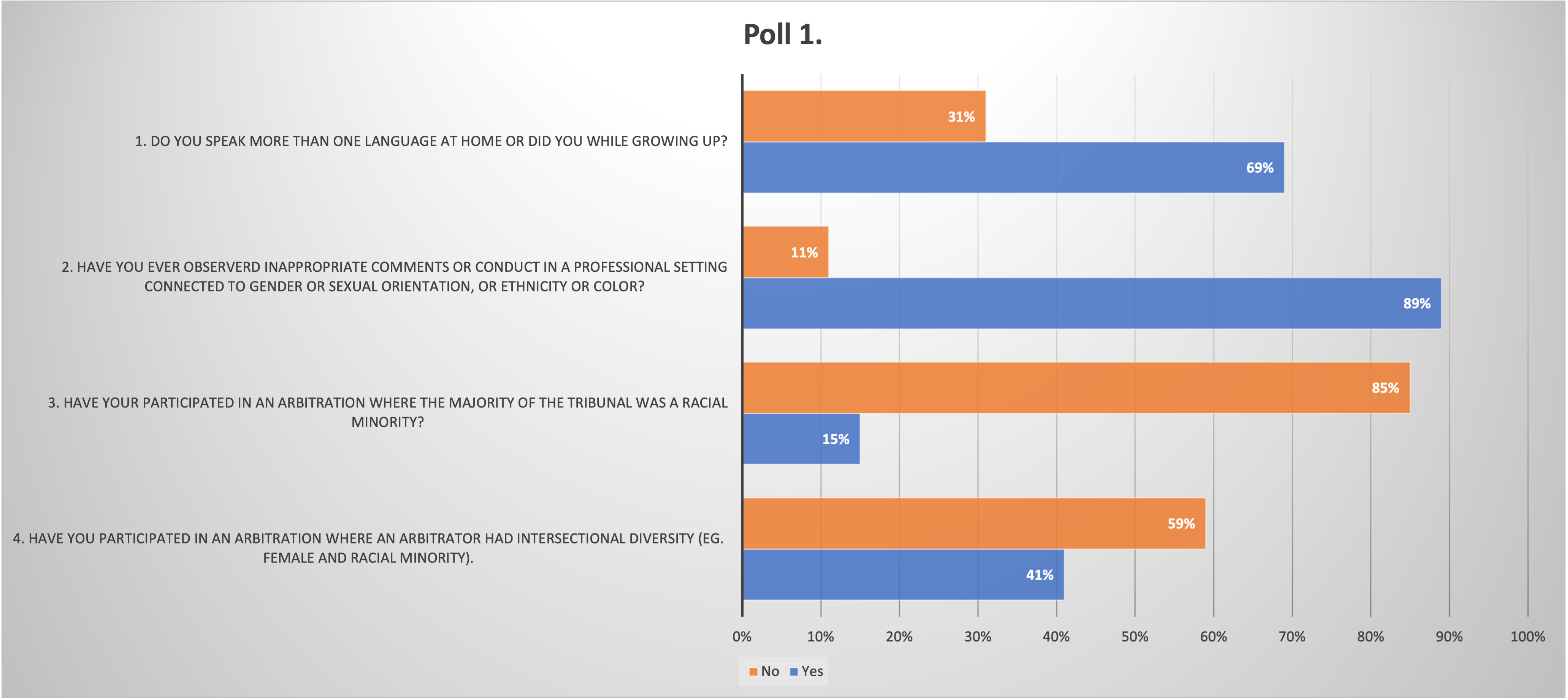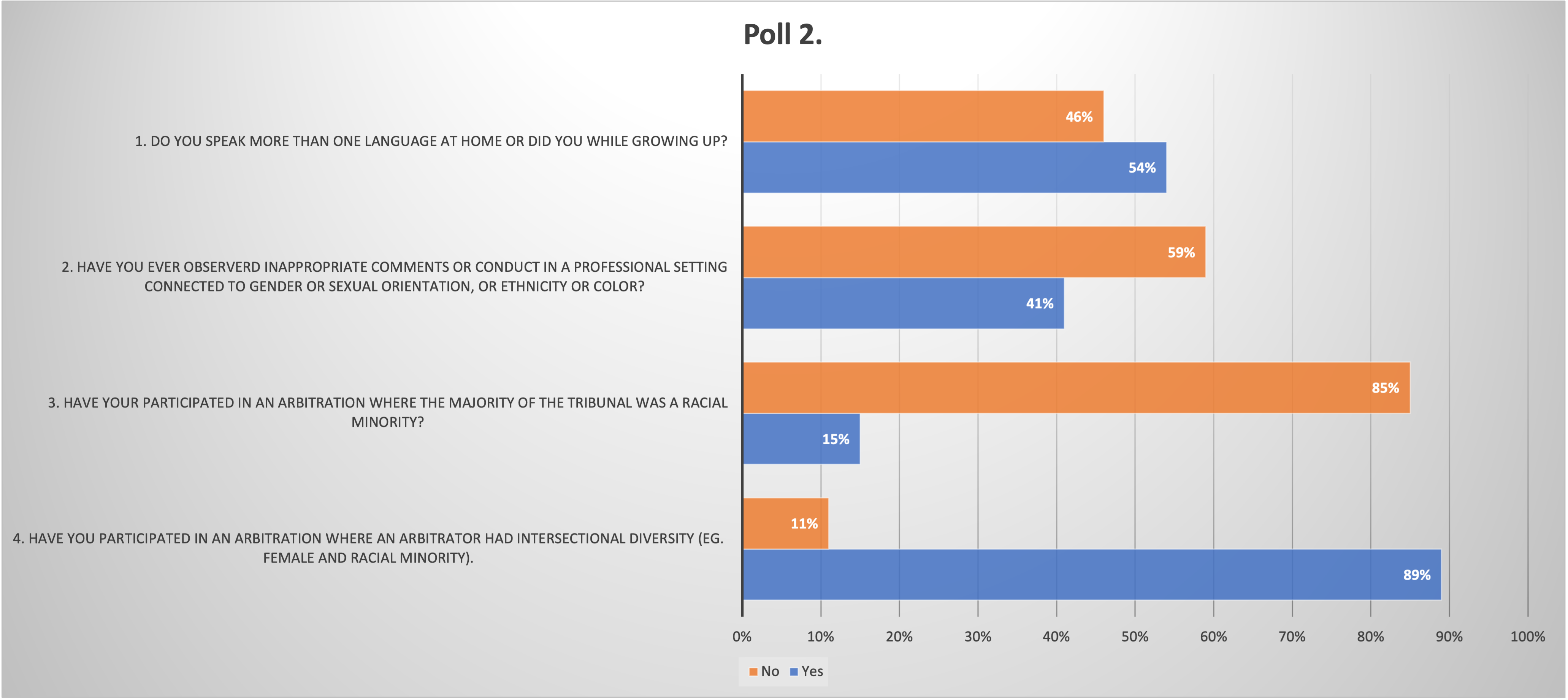The launch of Racial Equality for Arbitration Lawyers (REAL) took place on 18 January 2021.The date to launch this initiative coincided with Martin Luther King’s Day, to commemorate the birth of this influential civil rights leader, known for his fight for racial equality.
The initiative is led by Kabir Duggal, Rekha Rangachari, and Crina Baltag, with the support of lawyers from all around the world. The energy and enthusiasm surrounding REAL have provided a strong foundation for the initiative, with members and allies representing diverse groups, genders, ethnicities and their intersections. This initiative is already backed by over 70 arbitral institutions.
REAL aims to build a dialogue and generate process-oriented action to address the lack of diversity and inclusion in international arbitration (IA). Some of the core goals of REAL include access and advocacy; to open the door for people of diverse backgrounds to the practice of arbitration, building pipeline opportunities and increasing the number of spotlights on diverse talent.
The launch of REAL was divided into two sessions, with six keynote speakers with impressive credentials leading positive change in their practice and communities. The speakers brought to the table important aspects that need to be addressed in the practice of international arbitration.
Why Diversity Matters in Adjudicative Bodies
Judge Navanethem Pillay explained why diversity matters in adjudicative bodies and pointed out that the practice of exclusion (e.g., women and people of color) still happens in international institutions all over the world.
From her experience as the first non-white woman to sit on the bench of the High Court of South Africa and the only woman sitting on the International Criminal Tribunal for Rwanda, she reflected on the importance of the presence of women on tribunals. “Whenever a bench delivered judgments including on rape and sexual violence, invariably women were sitting as judges. Whenever there weren’t any of these convictions, no women had sat on the bench.” The importance of diversity is clear in the ability of the tribunal to evaluate the claims made by the victims.
She also reflected on the impact her upbringing – as a non-white female in Apartheid Africa, with a judiciary entirely integrated of white males – had on her approach to the issue of compensation for victims, and how she advocated for a more restorative form of justice rather than solely retributive. This novel approach was possible because she related to the victims’ experiences, coming from a similar background herself.
For Judge Pillay, diversity and inclusion matter in international arbitration and domestic situations for comparable reasons. Initiatives such as REAL help traditionally excluded groups to achieve the visibility they require and lessen issues of representation.
Lack of Diversity Finds its Root in the Lack of Access to Capacity Building
Mr. Kevin Kim shared his personal experience as a young practitioner in international arbitration to demonstrate how the lack of access to capacity building derives in lack of diversity. During the early years of his career, he was surprised to see that clients routinely retained big international law firms for international arbitration cases. He was disappointed but saw an opportunity to change the norm. He focused on enhancing the capabilities of Korean lawyers so that clients across the world sought out their services.
He decided to address the issue of a lack of diversity by passing on his experience and sharing his knowledge with colleagues and competitors alike, to help build a thriving community of international lawyers in Seoul.
The lesson learned is that if the people are equipped with the right skill set, they can perform wonders. Kim stressed the importance of capacity building of people of diverse backgrounds and to give minorities access to the best procedures and practices. He assures “It is through our excellence that clients will start noticing us”.
On the other hand, Kim emphasized that the IA community needs to move away from the raw notion of diversity itself, but encourage a healthy diversity where people are respected and hired for their unique perspectives and skills and not for diversity factors as racial identity.
International arbitration transcends borders and thus, there is a greater need for diversity than in other areas of law. In a case where we encounter different nationalities; diversity becomes the instrument to harmonize differences. Moreover, virtual hearings may be the new norm for IA and, therefore, distance, cannot continue to be an excuse for ignoring the underrepresentation of minorities, since technology has truly brought people together.
The arbitration industry must make an effort to showcase the talent of diverse lawyers and bring them into the spotlight so that they do not go unnoticed by potential clients. This is where REAL could serve as a medium.
Being a Woman in International Arbitration
Dr. Nayla Comair-Obeid delivered a thought-provoking speech where she addressed the challenges of being a woman in international arbitration. As a woman arbitrator originally from Lebanon, she was born at a time when being a judge was a position reserved for men and she battled in this professional world. The first time she was proposed as a Chair in a domestic arbitration, one of her co-arbitrators refused to serve in a Tribunal where the chairperson would be a woman. His male colleague argued that “The brain of a woman cannot rule like the brain of a man”.
The challenge grew bigger when she started developing her career internationally and gained more appointments as an arbitrator, where she faced similar prejudices and stereotypes as those of her home jurisdiction. Further, she has learnt to reconcile the roles of being a mother, a wife, and an arbitrator. Dr. Comair-Obeid shared three stories of bias and prejudice she encountered over the years.
First, in 2017 she was appointed president of the Chartered Institute of Arbitrators (CIArb) and was the first woman of the Middle East to occupy that position. Despite having worked many years in the Institution and opening the Lebanon office, her election still prompted skeptical comments about a woman from the Middle East presiding CIAarb.
Second, she noted that unconscious bias and prejudice are present when appointing arbitrators. While arbitral institutions play an important role when appointing arbitrators from diverse backgrounds, this sentiment is not always shared by the parties. For instance, in an ICSID arbitration, one of the parties challenged her appointment exclusively because she was a Lebanese national.
Third, she recounted an experience where she suffered intimidation from a witness in a proceeding where she was acting as sole arbitrator. She felt this would have unlikely occurred if she were a man.
Finally, Dr. Comair-Obeid highlighted that arbitral institutions have a key role in promoting diversity and can help to fight biased perceptions and create bridges between countries and regions.
Diversifying ICSID
Ms. Meg Kinnear, as the Secretary-General of the International Centre for Settlement of Investment Disputes (ICSID) at the World Bank, addressed the institutional efforts being undertaken to address diversity issues.
From her unique position, Ms. Kinnear spoke about the role that ICSID plays within the institutional effort of the World Bank to foster equal opportunity and end racial discrimination.
She highlighted that a crucial way to nurture diversity is by nominating arbitrators from diverse backgrounds. She also noted that it is important to shine a spotlight on people with diverse backgrounds to make sure the community and the parties are aware of these profiles when they select arbitrators. Lastly, she acknowledged the positive progress in this regard, with the Secretariat selecting arbitrators from 40 different nationalities in the past year.
Finally, Ms. Kinnear stressed on the importance of accountability. Diversity, she concluded, has to be nurtured and cannot be taken for granted.
Diversity and the Importance of Personal Accountability
Professor Dr. Emilia Onyema, a senior lecturer at SOAS University of London and a Fellow of the CIArb, emphasized the importance of personal accountability.
As part of her efforts to foster diversity, Dr. Onyema remarked upon the African Promise and AFAS initiatives. The first is an initiative inspired by the ERA Pledge to help secure fair representation of African lawyers in arbitration bodies and institutions. The latter is intended to help African students with mentorship and opportunities to publish, among others.
She further provided examples of what each practitioner can do to advance diversity. First, she encouraged practitioners to challenge themselves and seek opportunities to make a difference and not to fall back on their comfort zone by opening doors for others. Additionally, she noted that the local arbitration scenes are often dominated by a small clique of people and that practitioners should be inclusive and more generous by sharing their space.
Diversity Makes Us Uncomfortable
Dr. Ucheora Onwuamaegbu remarked that diversity is a topic people are uncomfortable addressing and that not too long ago, these conversations would have been professionally risky.
Dr. Onwuamaegbu has had a very diverse professional background. From a small law firm in London to the United Nation’s Compensation Commission, to ICSID, and again to private practice. From his experience, he shared five lessons:
- It is important to be open to different approaches and work cultures. If people do something different is not because they are incompetent or lazy. Accents only mean that people are smart enough to speak different languages.
- No one is born knowing international arbitration. People that might have initially been very insecure, now have blossomed to be highly regarded experts in the field. The only difference between those people and the rest, is that they were given the opportunity to grow. We need to extend this privilege to everyone.
- Diversity is not rhetoric. Cultural and racial diversity in international arbitration is important because it brings novel perspectives leading to more balanced results. This strengthens the legitimacy of the system.
- Achieving diversity is possible and this is done through equal opportunities for all.
- All stakeholders have a role to playing ensuring diversity and inclusion.
Final Remarks
In both sessions, all participants were presented with certain questions as polls. The results for these questions were fairly consistent, albeit disappointing. Below are the results of the polls for us to reflect upon:
Session 1:

Session 2:

The initiatives shared by the keynote speakers suggest that international arbitration is changing, undoubtedly for the better. Institutional efforts to ensure diversity in tribunals and commitments that promote fair representation are steps in the right direction. Still, the polling results remind us that there is an important lack of diversity and inclusion. The REAL initiative has a key role to play in shining a limelight on talent from diverse backgrounds that can help breach the diversity gap. The time is right to get real about diversity and inclusion. The full recordings of the launch of REAL are available here and here.
Membership to REAL is open to the public for free. Consider signing up here.
________________________
To make sure you do not miss out on regular updates from the Kluwer Arbitration Blog, please subscribe here. To submit a proposal for a blog post, please consult our Editorial Guidelines.


